Canadian Energy Centre
European governments are reassessing EU-directed green policies amid public unease
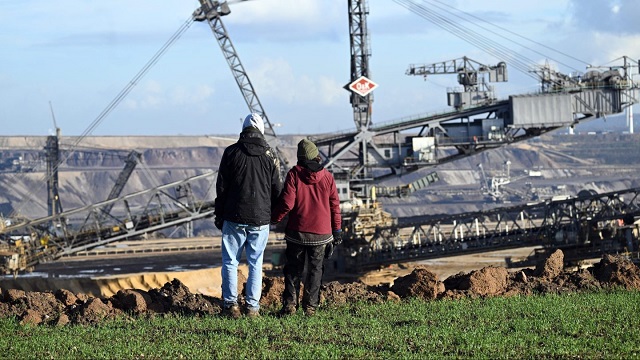
From the Canadian Energy Centre
By Shawn Logan
How ‘greenlash’ is forcing Europe to scale back ambitious net zero policies
European governments are beginning to sound the retreat on some foundational net zero policies in the wake of “greenlash” from increasingly overburdened citizens.
Russia’s invasion of Ukraine in 2022 prompted European governments to begin pivoting away from cheap Russian natural gas, which Europe increasingly relied on to backstop a laundry list of ambitious green policies.
But despite pledges by the European Union to “divest away from Russian gas as quickly as possible,” nearly 15% of overall EU gas imports still came from Russia in the first half of 2023, while the amount of liquefied natural gas (LNG) imported from Russia actually increased by 39.5% compared to the same period in 2021, prior to the Ukraine invasion.
Energy security and affordability have become central issues for Europeans amid a persistent global energy crisis, and that’s translated into a rethink of what had once seemed like unassailable green policies across Europe.
Here’s a look at how some countries are dealing with the new global reality:
Germany
Nothing is more symbolic of Europe’s retreat from its net zero ambitions than Germany seeing a wind farm dismantled to make room for the expansion of a lignite coal mine just outside of Dusseldorf.
And no European country has been more affected by the changing energy landscape than Germany, which introduced its multi-billion dollar Energiewende program in 2010, calling for a broad phaseout of fossil fuels and nuclear power, replacing them primarily with wind and solar power.
Today, without cheap and reliable natural gas backups due to sanctions against Russia, Germany has gone from Europe’s economic powerhouse to the world’s worst performing major developed economy, facing “deindustrialization” due to skyrocketing energy costs.
In addition to extending its deadline for shutting down coal plants until 2024, the German government has also scrapped plans for imposing tougher building insulation standards to reduce emissions as well as extending the deadline on controversial legislation to phase out oil and gas heating systems in homes, a decision the government admits will make it impossible to reach the country’s 2030 emissions targets.
A major car manufacturer, Germany’s opposition to an EU-wide ban on the sale of new combustion vehicles by 2035 softened the legislation to allow exceptions for those that run on e-fuels.
Germany’s quest for reliable energy exports prompted Chancellor Olaf Scholz to travel to Canada to make a personal appeal for Canadian LNG. He was sent home empty handed, advised there wasn’t a strong business case for the resource.
Great Britain
Britons have grown increasingly concerned about the cost of net zero policies, despite being largely supportive of striving for a greener future.
A YouGov poll in August found while 71% generally favoured Great Britain’s aim to reduce carbon emissions to net zero by 2050, some 55% agreed that policies should only be introduced if they don’t impose any additional costs for citizens. Only 27% agreed reaching the goal was important enough to warrant more spending.
That shift in public sentiment prompted Prime Minister Rishi Sunak to pump the brakes on some key policies enacted to reach the U.K.’s legally binding target of reaching net zero emissions by 2050.
In September, the government delayed its looming ban on new gas- and diesel-powered cars by five years to 2035, while also extending its phaseout of gas boilers in homes and suggesting exemptions for certain households and types of property.
“If we continue down this path, we risk losing the British people and the resulting backlash would not just be against specific policies, but against the wider mission itself,” Sunak said of the potential consequences of maintaining strict net zero policies.
The U.K. government also gave the green light for hundreds of new North Sea oil and gas licences, citing the need to bolster both energy security and the nation’s economy.
France
France’s net zero ambitions enjoy an advantage compared to its European peers due in large part to its significant fleet of nuclear power stations, which provide around 70 per cent of its electricity.
However, President Emmanuel Macron has often opted for a more pragmatic approach to reaching climate targets, noting any energy transition can’t leave citizens disadvantaged.
“We want an ecology that is accessible and fair, an ecology that leaves no one without a solution,” Macron said in September after ruling out a total ban on gas boilers, instead offering incentives to those looking to replace them with heat pumps.
Macron also famously dropped a proposed fuel tax in 2018 that sparked sweeping yellow vest protests across France when it was announced.
France has also extended the timeframe of its two remaining coal plants to continue operating until 2027, five years later than the plants were originally set to be shuttered.
Italy
Feeling the impacts of the global energy crisis, Italy has begun reassessing some of its previous commitments to transition goals.
Earlier this year, Italy pushed back on EU directives to improve the energy efficiency of buildings, which Italy’s national building association warned would cost some $400 billion euros over the next decade, with another $190 billion euros needed to ensure business properties met the required standards. The Italian government has called for exemptions and longer timelines.
Italy also warned the European Commission it would only support the EU’s phase out of combustion engine cars if it allows cars running on biofuels to eclipse the deadline, while further questioning a push to slash industrial emissions.
Paolo Angelini, deputy governor at the Bank of Italy, warned a rapid abandonment of fossil fuel-driven industries could have a devastating impact.
“If everybody divests from high-emitting sectors there will be a problem because if the economy does not adjust at the same time, things could blow up unless a miracle happens in terms of new technology,” he said.
Poland
Like Italy, Poland has dug in its heels against some EU net zero initiatives, and is actually suing the EU with the goal of overturning some of its climate-focused legislation in the courts.
“Does the EU want to make authoritarian decisions about what kind of vehicles Poles will drive and to increase energy prices in Poland? The Polish Government will not allow Brussels to dictate,” wrote Polish Climate and Environment Minister Anna Moskwa on X, formerly known as Twitter, in July.
In addition to looking to scrap the EU’s ban on combustion engine cars by 2035, Warsaw is also challenging laws around land use and forestry, updated 2030 emissions reduction targets for EU countries, and a border tariff on carbon-intensive goods entering the European Union.
With some 70% of its electricity generated by coal, Poland is one of Europe’s largest users of coal. And it has no designs on a rapid retreat from the most polluting fossil fuel, reaching an agreement with trade unions to keep mining coal until 2049.
Netherlands
The political consequences of leaning too far in on net zero targets are beginning to be seen in the Netherlands.
In March, a farmer’s protest party, the BBB or BoerBurgerBeweging (Farmer-Citizen Movement), shook up the political landscape by capturing 16 of 75 seats in the Dutch Senate, more than any other party, including the ruling coalition of the Labor and Green Parties.
The upstart party was formed in 2019 in response to government plans to significantly reduce nitrogen emissions from livestock by 2030, a move estimated to eliminate 11,200 farms and force another 17,600 farmers to significantly reduce their livestock.
What followed were nationwide protests that saw supermarket distribution centres blockaded, hay bales in flames and manure dumped on highways.
In November, Dutch voters will elect a new national government, and while BBB has dropped to fifth in polling, much of that support has been picked up by the fledgling New Social Contract (NSC), which has vowed to oppose further integration with EU policies, a similar stance offered by the BBB. The NSC currently tops the polls ahead of the Nov. 22 election.
Canadian Energy Centre
Trans Mountain completion shows victory of good faith Indigenous consultation
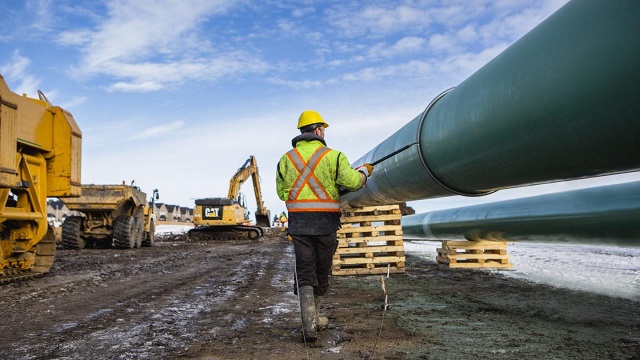
Photo courtesy Trans Mountain Corporation
From the Canadian Energy Centre
‘Now that the Trans Mountain expansion is finally completed, it will provide trans-generational benefits to First Nations involved’
While many are celebrating the completion of the Trans Mountain pipeline expansion project for its benefit of delivering better prices for Canadian energy to international markets, it’s important to reflect on how the project demonstrates successful economic reconciliation with Indigenous communities.
It’s easy to forget how we got here.
The history of Trans Mountain has been fraught with obstacles and delays that could have killed the project, but it survived. This stands in contrast to other pipelines such as Energy East and Keystone XL.
Starting in 2012, proponent Kinder Morgan Canada engaged in consultation with multiple parties – including many First Nation and Métis communities – on potential project impacts.
According to Trans Mountain, there have been 73,000 points of contact with Indigenous communities throughout Alberta and British Columbia as the expansion was developed and constructed. The new federal government owners of the pipeline committed to ongoing consultation during early construction and operations phase.
Beyond formal Indigenous engagement, the project proponent conducted numerous environmental and engineering field studies. These included studies drawing on deep Indigenous input, such as traditional ecological knowledge studies, traditional land use studies, and traditional marine land use studies.
At each stage of consultation, the proponent had to take into consideration this input, and if necessary – which occurred regularly – adjust the pipeline route or change an approach.
With such a large undertaking, Kinder Morgan and later Trans Mountain Corporation as a government entity had to maintain relationships with many Indigenous parties and make sure they got it right.
 Trans Mountain participates in a cultural ceremony with the Shxw’ōwhámél First Nation near Hope, B.C. Photograph courtesy Trans Mountain
Trans Mountain participates in a cultural ceremony with the Shxw’ōwhámél First Nation near Hope, B.C. Photograph courtesy Trans Mountain
It was the opposite of the superficial “checklist” form of consultation that companies had long been criticized for.
While most of the First Nation and Métis communities engaged in good faith with Kinder Morgan, and later the federal government, and wanted to maximize environmental protections and ensure they got the best deal for their communities, environmentalist opponents wanted to kill the project outright from the start.
After the government took over the incomplete expansion in 2018, green activists were transparent about using cost overruns as a tactic to scuttle and defeat the project. They tried to make Trans Mountain ground zero for their anti-energy divestment crusade, targeting investors.
It is an amazing testament to importance of Trans Mountain that it survived this bad faith onslaught.
In true eco-colonialist fashion, the non-Indigenous activist community did not care that the consultation process for Trans Mountain project was achieving economic reconciliation in front of their eyes. They were “fair weather friends” who supported Indigenous communities only when they opposed energy projects.
They missed the broad support for the Trans Mountain expansion. As of March 2023, the project had signed agreements with 81 Indigenous communities along the proposed route worth $657 million, and the project has created over $4.8 billion in contracts with Indigenous businesses.
Most importantly, Trans Mountain saw the maturing of Indigenous capital as Indigenous coalitions came together to seek equity stakes in the pipeline. Project Reconciliation, the Alberta-based Iron Coalition and B.C.’s Western Indigenous Pipeline Group all presented detailed proposals to assume ownership.
Although these equity proposals have not yet resulted in a sale agreement, they involved taking that important first step. Trans Mountain showed what was possible for Indigenous ownership, and now with more growth and perhaps legislative help from provincial and federal governments, an Indigenous consortium will be eventually successful when the government looks to sell the project.
If an Indigenous partner ultimately acquires an equity stake in Trans Mountain, observers close to the negotiations are convinced it will be a sizeable stake, well beyond 10 per cent. It will be a transformative venture for many First Nations involved.
Now that the Trans Mountain expansion is finally completed, it will provide trans-generational benefits to First Nations involved, including lasting work for Indigenous companies. It will also demonstrate the victory of good faith Indigenous consultation over bad faith opposition.
Alberta
Game changer: Trans Mountain pipeline expansion complete and starting to flow Canada’s oil to the world
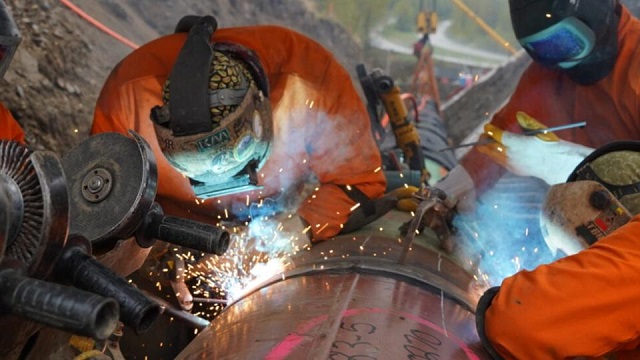
Workers complete the “golden weld” of the Trans Mountain pipeline expansion on April 11, 2024 in the Fraser Valley between Hope and Chilliwack, B.C. The project saw mechanical completion on April 30, 2024. Photo courtesy Trans Mountain Corporation
From the Canadian Energy Centre
By Will Gibson
‘We’re going to be moving into a market where buyers are going to be competing to buy Canadian oil’
It is a game changer for Canada that will have ripple effects around the world.
The Trans Mountain pipeline expansion is now complete. And for the first time, global customers can access large volumes of Canadian oil, with the benefits flowing to Canada’s economy and Indigenous communities.
“We’re going to be moving into a market where buyers are going to be competing to buy Canadian oil,” BMO Capital Markets director Randy Ollenberger said recently, adding this is expected to result in a better price for Canadian oil relative to other global benchmarks.
The long-awaited expansion nearly triples capacity on the Trans Mountain system from Edmonton to the West Coast to approximately 890,000 barrels per day. Customers for the first shipments include refiners in China, California and India, according to media reports.
Shippers include all six members of the Pathways Alliance, a group of companies representing 95 per cent of oil sands production that together plan to reduce emissions from operations by 22 megatonnes by 2030 on the way to net zero by 2050.
The first tanker shipment from Trans Mountain’s expanded Westridge Marine Terminal is expected later in May.
 Photo courtesy Trans Mountain Corporation
Photo courtesy Trans Mountain Corporation
The new capacity on the Trans Mountain system comes as demand for Canadian oil from markets outside the United States is on the rise.
According to the Canada Energy Regulator, exports to destinations beyond the U.S. have averaged a record 267,000 barrels per day so far this year, up from about 130,000 barrels per day in 2020 and 33,000 barrels per day in 2017.
“Oil demand globally continues to go up,” said Phil Skolnick, New York-based oil market analyst with Eight Capital.
“Both India and China are looking to add millions of barrels a day of refining capacity through 2030.”
In India, refining demand will increase mainly for so-called medium and heavy oil like what is produced in Canada, he said.
“That’s where TMX is the opportunity for Canada, because that’s the route to get to India.”
Led by India and China, oil demand in the Asia-Pacific region is projected to increase from 36 million barrels per day in 2022 to 52 million barrels per day in 2050, according to the U.S. Energy Information Administration.
More oil coming from Canada will shake up markets for similar world oil streams including from Russia, Ecuador, and Iraq, according to analysts with Rystad Energy and Argus Media.
Expanded exports are expected to improve pricing for Canadian heavy oil, which “have been depressed for many years” in part due to pipeline shortages, according to TD Economics.
 Photo courtesy Trans Mountain Corporation
Photo courtesy Trans Mountain Corporation
In recent years, the price for oil benchmark Western Canadian Select (WCS) has hovered between $18-$20 lower than West Texas Intermediate (WTI) “to reflect these hurdles,” analyst Marc Ercolao wrote in March.
“That spread should narrow as a result of the Trans Mountain completion,” he wrote.
“Looking forward, WCS prices could conservatively close the spread by $3–4/barrel later this year, which will incentivize production and support industry profitability.”
Canada’s Parliamentary Budget Office has said that an increase of US$5 per barrel for Canadian heavy oil would add $6 billion to Canada’s economy over the course of one year.
The Trans Mountain Expansion will leave a lasting economic legacy, according to an impact assessment conducted by Ernst & Young in March 2023.
In addition to $4.9 billion in contracts with Indigenous businesses during construction, the project leaves behind more than $650 million in benefit agreements and $1.2 billion in skills training with Indigenous communities.
Ernst & Young found that between 2024 and 2043, the expanded Trans Mountain system will pay $3.7 billion in wages, generate $9.2 billion in GDP, and pay $2.8 billion in government taxes.
-

 Brownstone Institute6 hours ago
Brownstone Institute6 hours agoMedical Elites’ Disgrace Over Ivermectin
-

 National4 hours ago
National4 hours agoDespite claims of 215 ‘unmarked graves,’ no bodies have been found at Canadian residential school
-

 COVID-193 mins ago
COVID-193 mins agoThe New York Times Admits Injuries from COVID-19 Shots
-
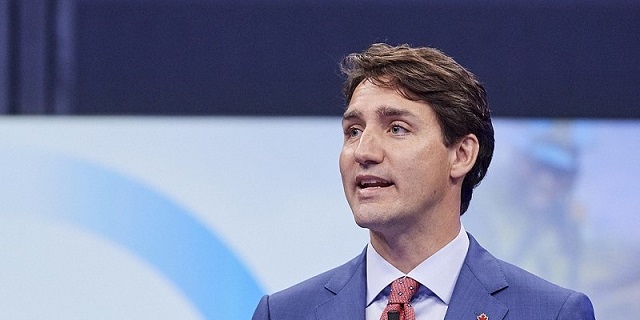
 Automotive11 hours ago
Automotive11 hours agoElectric vehicle mandates mean misery all around
-
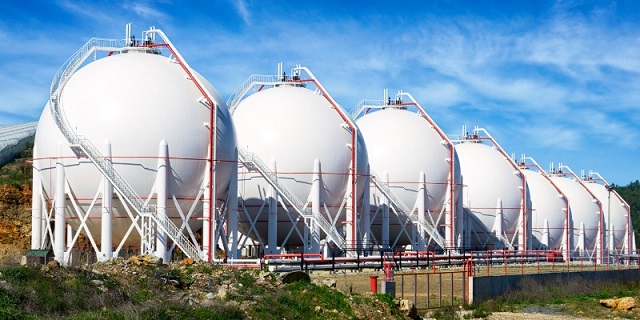
 Energy3 hours ago
Energy3 hours agoFederal government continues to reject golden opportunities to export LNG
-

 Opinion10 hours ago
Opinion10 hours agoThe American Experiment Has Gone Down In Flames
-

 COVID-192 days ago
COVID-192 days agoNIH Quietly Altered Definition For Gain-Of-Function Research On Its Website, Former Fauci Aide Confirms
-
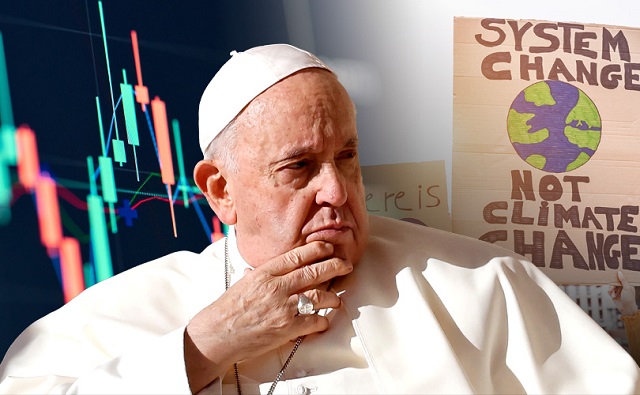
 Energy2 days ago
Energy2 days agoPope Francis calls for ‘global financial charter’ at Vatican climate change conference



